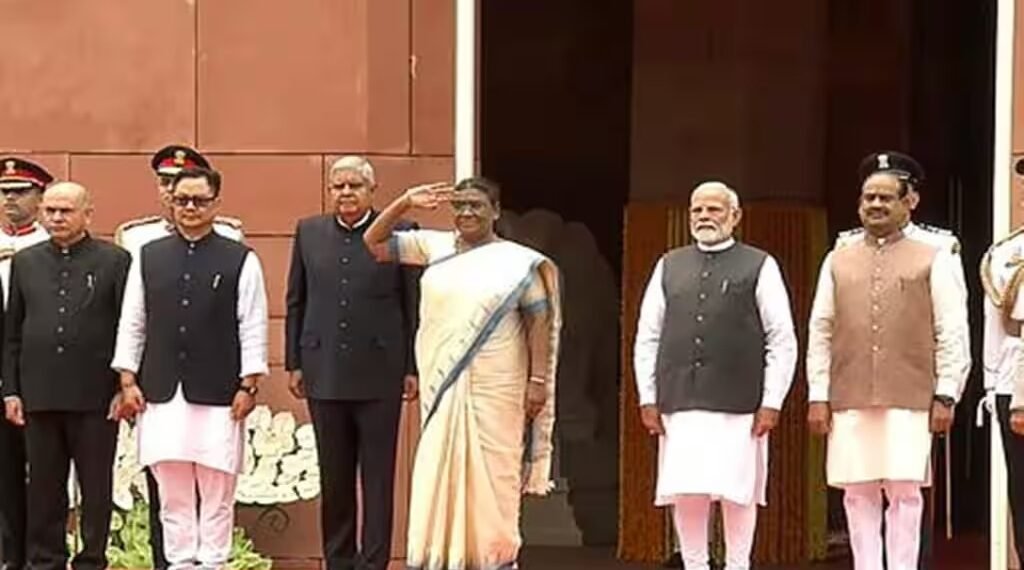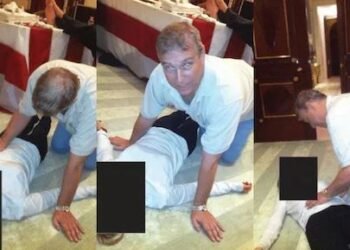President Droupadi Murmu calls Emergency the ‘darkest chapter’ in India’s history
During her address to a joint session of Parliament on Thursday, President Droupadi Murmu referred to the 1975 Emergency enforced by then-Prime Minister Indira Gandhi as the “biggest attack” on the Constitution and the “darkest chapter” in the country’s history.
In her first address to Parliament after the 18th Lok Sabha was created following general elections, President Murmu stated that the country was thrown into disarray under the Emergency and that attempts to “tarnish” democracy should be denounced by everybody.
“Emergency was the biggest and darkest chapter of the direct attack on the Constitution. The entire country plunged into chaos during Emergency, but the nation was victorious against such unconstitutional powers,” she said amid cheers from the ruling BJP members and protests by the Opposition.
Also read: BJP stalwart LK Advani admitted to AIIMS; condition stable
“Every attempt to undermine our democracy should be denounced by everyone. “Divisive forces are conspiring to weaken democracy and create schisms in society both within and outside the country,” the President stated.
The war of words continues
The Emergency, which lasted nearly two years, from June 1975 to March 1977, was imposed by Indira Gandhi and agreed upon by then-President Fakhruddin Ali Ahmed under Article 352 of the Constitution. A state of emergency was declared on the grounds that there were urgent internal and external threats to the nation.
Also read: Om Birla elected Lok Sabha speaker for the second time
President Murmu’s remarks on the emergency came amid a battle of words between the BJP and the opposition on the subject. While Prime Minister Narendra Modi and his ministers recalled the horrors of the Emergency, the Congress and its allies responded by claiming that a “undeclared Emergency” had existed for the previous ten years of the BJP-led NDA’s leadership.
On Wednesday, Lok Sabha Speaker Om Birla, who was elected for a second term, invoked the Emergency, claiming that India’s democratic values were crushed and freedom of expression was stifled during the “dark period”.
He also held a two-minute pause in memory of the individuals who died during the era, eliciting loud protests and sloganeering from the opposition.














